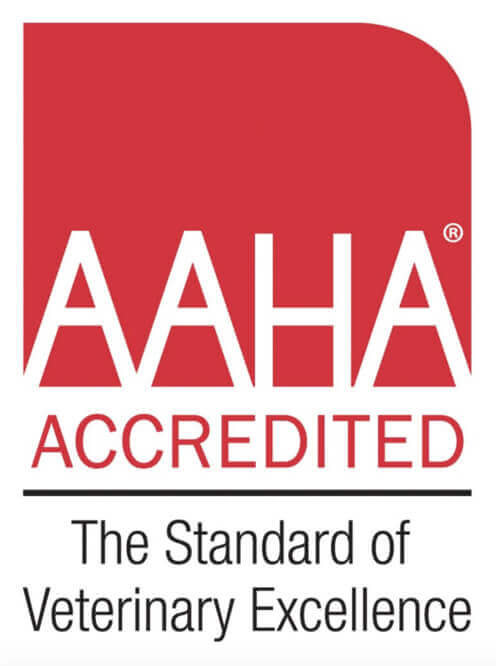.jpg)
As a pet owner, it’s critical to understand the various dog medications that may be prescribed by your veterinarian, as they each have potential side effects and interactions. In this article, we’ll discuss the most commonly used medications for dogs, when they should be prescribed, potential side effects and drug interactions, long-term use, the importance of speaking to a veterinarian before administering any new medications to your dog, and where to get your dog’s medications refilled. At Bridge Veterinary Hospital, we are dedicated to providing the best quality service and care for pets and understand how important it is that pet owners are educated about dog medications.
What Are Commonly Used Dog Medications?
Veterinarians use very similar products to those prescribed for humans, with each medication proven to be both safe and effective for dogs. However, we should point out that you should never give your dog your own medicines, as you could cause your dog serious harm or even death.
There are various medications prescribed for dogs depending on the circumstances and the symptoms your dog is experiencing.
Commonly-used dog medications include:
- Antibiotics
- Antifungals
- Pain medications
- Preventatives for fleas, ticks, and heartworm
.jpg)
What Are the Side Effects and Potential Adverse Reactions to Dog Medications?
Just like human medications, pet medications can also have unwanted side effects and adverse reactions. They can range from mild to severe, depending on the type of medication, the health of the pet, its age, the administration method, and how well your particular dog tolerates the medication.
The most common side effect that pets experience from medicine is gastrointestinal upset. This is due to the fact that most medications are taken orally and absorbed in the gastrointestinal tract. Some pets may have a more serious reaction, including vomiting, diarrhea, and a decrease or lack of appetite. These symptoms often resolve as the pet’s body adjusts to the medication, but sometimes the symptoms can become severe, and the use of the medication needs to be stopped. Other common side effects include excessive salivation due to medications with a bitter or unpleasant taste. Common signs of a medication reaction include redness, swelling, itching, hair loss, ear or skin infections, hives, lethargy, vomiting, diarrhea, excessive drooling, seizures, difficulty breathing, and collapse.
What Do I Need to Know About Possible Drug Interactions?
Several medications interact with one another, so you must communicate any medications your dog is currently taking or has recently taken before your veterinarian prescribes a new one—especially if you’re seeing a new veterinarian who isn’t familiar with your dog. It’s also essential that you communicate any adverse history your dog has with certain medications, so your veterinarian can avoid another reaction. If your dog takes medications that don’t interact well with each other, it could cause an upset stomach. That could lead to the medicine not being absorbed well enough, or it can even make the medication absorb too well and cause an overdose.
What Are Potential Consequences of Long-Term Medication Use?
Your dog can be on some medication indefinitely, but some others should be avoided long-term. Long-term medical problems often require long-term medication, such as the medications we give to control serious disorders like seizures. Arthritis is another condition safely managed with long-term medication, with blood work done regularly to assess liver and kidney function. Short-term medication is used for cases like pain management, which is only needed post-surgery or when an injury occurs.
.jpg)
Why is it Important Not to Give My Dog Medications Without Speaking to a Veterinarian First?
It’s important to always speak to a veterinarian before giving your dog any medication. Your veterinarian is trained and educated to determine the best course of action in terms of diagnosis, treatment, and medications for your pet. Additionally, regular veterinary visits are essential for the early detection and intervention of health issues, thereby extending your dog’s life. Early intervention is also attributed to avoiding diseases that may require medication.
What tricks can I use to give my dog medicine?
There are many tricks for giving dogs medication. Peanut butter is a great one. You stick the pill in peanut butter and put that right in the roof of your dog's mouth, and they will more than likely be happy about that! And then the same thing goes for these soft-forming treats. You can use pill pockets and even marshmallows. If your dog is a food allergy-type dog and can't receive the typical treats and peanut butter, you can get vegan marshmallows. Those are great alternatives that you can use to hide the pill and then pop it into your dog’s mouth.
If your dog is not the most cooperative for tricks with the food, we can use a pill popper. You just stick the pill right in the very tip, a soft rubber. Once you stick the pill in there, you’ll open your dog's mouth and pop it right down the back of their throat.
Where Should I Get My Dog’s Medications Refilled?
Most of your dog's medication should be refilled at your veterinarian's office. They may be able to call some medications into a human pharmacy, but they’d have to make sure that they're calling in the proper dosing. And vets can offer refills, but many of those will have to be refilled at their office.
There are also online pharmacies, but you should only use the one associated with your veterinarian. Many of the medications we see in other online pharmacies can't be guaranteed where they come from, and they can be counterfeit products. So you always want to be as safe as possible with your dog's medications and make sure you're getting them from your veterinarian or an approved pharmacy of your veterinarian.
Conclusion
The right medication can make a world of difference in your pet’s health. However, proper management of medications requires careful consideration of the risks and benefits associated with them. Pet owners should always speak to their veterinarian before giving their dog any medication and closely adhere to instructions for the administration of those medications. If you live in or near Point Pleasant, NJ, and are looking for quality pet care, come visit us at Bridge Veterinary Hospital where your pet is our priority. Contact us at (567) 361-3407 to set an appointment, or email us at [email protected]. Our staff would love to talk with you!

